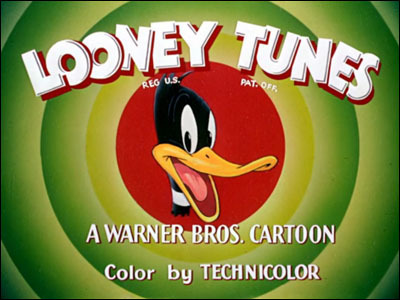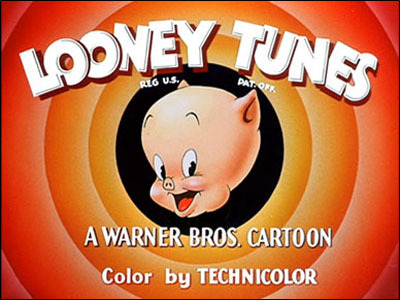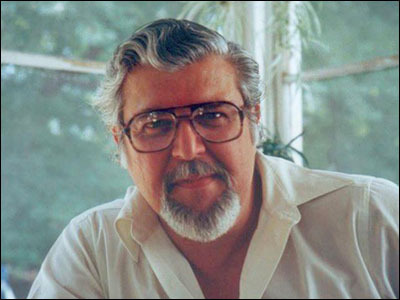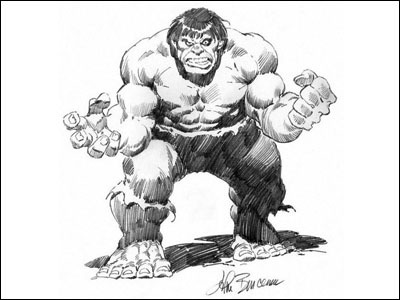Mark Evanier's Blog, page 264
January 15, 2023
Today's Video Link
As we all know, The Dick Van Dyke Show started life as Head of the Family, an unsold pilot written by and starring Carl Reiner as Rob Petrie — pronounced "Pete-ree." It took off when it was renamed and totally recast with Dick Van Dyke as Rob Petrie, pronounced "Pet-ree." It also looked and played better as a three-camera sitcom shot in front of a live audience in Los Angeles than it did as a one-camera sitcom shot with no audience in New York.
We have here a pretty good video of Head of the Family. I love about 98.5% of everything Carl Reiner ever did but I think this was in the 1.5%. You don't have to watch the whole thing but watch enough to see if you agree with me…
Sunday Evening
Many of you have written to remind me of other places where one can view vintage Looney Tunes and Merrie Melodies that may not be on HBO Max. Chief among them is MeTV, which runs a lot of them in the morning. The point is they're not difficult to find if you Google around a little.
And on the topic of "serious" interviews on talk shows, many of you have reminded me of Craig Ferguson's conversation with Stephen Fry and Desmond Tutu. Those were, of course, not his norm. My sense is that he insisted on doing them and CBS gave in to keep their host happy. It's worth noting that he did them both without a studio audience or his usual format and that he was on at 12:35. My hunch is that the network would not have been so agreeable if he'd been on at 11:35 and/or if they weren't at the time trying to persuade Mr. Ferguson to extend his contract.
In case you haven't heard: The San Diego Comic Fest — a small, personal comic convention that is unaffiliated with the big one in that town — has announced they will not have their 2023 gathering in Spring as they usually do. It will be held, they say, later in the year on dates as yet undetermined.
At some point in the next week or so, there will be some heavy maintenance work on this blog. When it's all over, things will look very much like they do now but with a few (what I hope will be) improvements. Until we get through all that, some parts of this site may be unavailable or funny-looking. Please excuse our cyber-dust.
Looney Programming

Many animation fans are incensed — more than I suspect they need to be — over the news that HBO Max has removed over 250 Warner Brothers cartoons from that streaming service. Gone are pretty much every cartoon WB made from 1950 onward. Some of the responses I've seen on the 'net make it sound like Warner Bros. Discovery — that's what the parent corporation is called this week — has decided to burn all existing prints and never let those wonderful cartoons be seen anywhere ever again.
That's not what's happening here. It's a programming decision and whether it turns out to be a good one remains to be seen. It probably depends solely on where and when they make those cartoons available again. They will. Those films are among the company's most valuable assets. They attract an audience every time they're shown anywhere and they don't really cost the corporation anything to run. Oh, sometimes one division of WBD has to pay something to another division of WBD but the money doesn't go outside the firm. No residuals are paid to Mel Blanc's estate or Chuck Jones's estate or anyone.
They're also the bedrock of an extremely lucrative merchandising program that rakes in zillions. Taking away the Tweety and Yosemite Sam cartoons jeopardizes the sales of Tweety t-shirts and Yosemite Sam whatever-they-can-sell-with-his-image-on-it-this-month.
All the news items about this move say that no decision about the future of those cartoons has been made. That may be so or it may be more correct to say that no plans have been announced. Either way, they'll turn up somewhere. It would be Corporate Malpractice for the current management to not monetize them in some way.
And the current management is just that: The current management. It's been quite a while since I talked to anyone who works for any arm or tentacle of WBD who didn't seem unsure whether they'll have a position there next month…or if so, to whom they'll be reporting.
If anything, this episode may teach us a lesson about not relying on streaming services to stream what we want to see when and where we want to see it. My friend George shares with me a love for the 1951 movie Ace in the Hole starring Kirk Douglas. Almost every time I talk to George, he complains that nobody ever runs it these days.

Well, I do…or can. I bought the Criterion DVD — great print and extras aplenty — and it's still available on Amazon for $22. What George (who has a lot more money than I do) is complaining about is that no one's running it for free, like on TCM. But it's available. If you don't want to spend the $22, it's watchable 24/7 with a premium subscription on Amazon Prime, for $3.99 on Vudu or Apple TV, for $2.99 on Google Play or YouTube…
…and even if all those services drop it next week, George can come over to my house and watch it if he'll stop at Vito's Pizza on La Cienega and pick up a pie with mushrooms and meatballs. In a world of infinite streaming services and channels, nothing good is ever going to be unavailable for very long. You just have to look a little and, in some cases, spend three damned dollars.
Getting back to Bugs Bunny and his pals: Someone on a comment thread I read wrote, "It's criminal that children today will never be able to watch classics like What's Opera, Doc? and Duck Amuck." I think "never" is too strong a word here, especially since a lot of the cartoons in question are quite viewable on Boomerang if someone is willing to spring for $5.99 a month.
And for less than a hundred bucks, it is still possible to purchase the Looney Tunes Golden Collection — a 24 DVD set of 40 hours of Warner Brothers cartoons that no one can ever take away from you or charge you more to view. That's not all of them but by the time you get tired of watching those over and over, it's likely the ones you can't see on HBO Max right now will be available somewhere else. That somewhere else might even be a better showcase for them.
Don't despair. Bugs, Daffy, Porky and all the rest will outlive all of us, including the current management at Warner Bros. Discovery and the next management at Warner Bros. Discovery and the one after that and the one after that and the one after that…
January 14, 2023
Comic-Con Memories
Continuing where we left off: Here's the schedule of what I did at Comic-Con International in 2004.
Someone wrote to ask me, as many have over the years, "How could you do so many panels?" It sounds silly but I think the answer is that I liked being at Comic-Con, I liked making some sort of contribution to Comic-Con…and I didn't know what else I could do there. I don't like sitting at a table signing books. I couldn't just wander the halls for 4.5 days. When I went to program items, I usually sat there frustrated that the moderators weren't asking the questions I thought they should be asking.
So why not? It gave me a place to sit and a chance to ask questions of…well, just look at some of the people we had on panels back then. I even got to interview Ray Bradbury for an hour in '04 and at several other Comic-Cons.
I'm going to post these, one per day, up to and including the list for 2011. The listings were already on this blog minus the little graphics I put on them back then but I like looking at them in this format and I hope you do too. And at some point, I'll post an index to where you can find the years after 2011.
Today's Video Link
Devin Stone, the "Legal Eagle" of YouTube, explains about copyright and gaming and Dungeons and Dragons…
ASK me: Talk Show Serious Interviews
Steven Replogle wrote to ask…
Last night, Stephen Colbert had Prince Harry on his show, and the interview touched upon some serious subjects while also, of course, including a number of jokes and witticisms. I usually find Colbert to be a good interviewer, able to shift from humor and entertainment to address more complex topics, and then back again. I thought last night’s interview was a bit awkward. He and Harry seemed both too eager to establish their humorous bonafides, and just as eager to share the serious stuff — sometimes slightly at cross-purposes.
Which brings me to my question: in your opinion, are there interviews when the late night "entertainment" host did a really good job presenting a serious interview? I know Cavett often featured literary and political discussions, and Jon Stewart and Trevor Noah both would switch gears to interview politicians and authors. You recently posted David Letterman's interview with Zelenskyy. But what about the hosts whose shows aimed for friendly and fun entertainment? Johnny, Jay, Dave (pre-retirement version) — heck, maybe even Mike Douglas or Merv Griffin — have they conducted "serious" interviews worth remembering?
All those shows attempted to get serious at one time or another, especially during tumultuous times in this country. I don't think they often succeeded…although one that comes to mind is that after Spiro Agnew resigned in disgrace, he avoided all kinds of interviewers. Then he (or someone under his name) wrote a couple of really awful books trying to make some dough and rehabilitate his image. He avoided tough interviews and probably didn't expect one when he went on with Merv Griffin to promote one of those books.
Merv had consulted with someone, obviously, and was prepared for the encounter. That one comes to mind and not very many others…some of Cavett's…maybe the conversation Colbert had with Joe Biden about losing a son…not very many others. I haven't liked most interviews of politicians because they're not asked tough questions. Everyone's goal seems to be to make them come across as funny and charming as the comedian who was in that guest chair before them. The format of what we now call a talk show doesn't lend itself well to spontaneous conversations because the host feels expected to get a laugh out of the front row every thirty seconds.
I sense a great difference in Mr. Colbert's interviews depending on whether he feels comfortable enough with the guest's ability to ad-lib. Often, he does not…and that's in part because if the guest is on to promote something, there may be an understanding that certain questions will be asked and certain stories will be told. The conversation is not to stray too far from what a great new movie the guest has opening next week.
The best host I've seen for serious conversations would have to be Jon Stewart. He did a lot of them, often with guests who weren't expected to be funny. I think the political bent of The Daily Show made such conversations not seem outta-place like they have on some shows that want everyone in the guest chair to get laughs. Of course, here I'm only talking about shows which have a live studio audience. Tom Snyder could do some great serious interviews because he didn't have one.
If I ponder this topic for a while, I'm sure I'll think of some other good serious interviews. The problem is this "a laugh every thirty seconds" mentality. It causes the hosts to only ask questions where they know the guest has an entertaining answer at the ready.
January 13, 2023
Comic-Con Memories
Here is the schedule of panels with me on them at Comic-Con International in 2003. You'll note that most of these panels are in 90-minute time slots which means the panel itself generally ran 75 minutes to allow for the changeover to the next panel. Since sometimes, the next panel in that room was hosted by me, I could go a bit longer…and in 2003, for example, the Sal Buscema panel didn't really end. It just kind of morphed into the Stan Goldberg panel.
Over the next few years, there were so many people who wanted to do panels — mostly to promote business enterprises but some that didn't — that 90-minute panels became scarcer. I began doing more panels in one-hour slots, which usually meant wrapping things up after 45 or 50 minutes as people began wandering in to claim seats for the next panel in the room.
The exception to this would be any panel in a room with a number that started with a "6." Those panels were and still are spaced on the schedule to allow fifteen minutes for changeover…so the announced end time was or is actually the time we would usually end. Once in a while, I end them a bit earlier if it feels right.
In 2003, they finally gave me big rooms for Quick Draw! and the Cartoon Voices Panel and I did something dumb with the latter: I invited lots of people to be on it…more than twice as many as I should have had up there. It was fun in a way but some panelists didn't get to say very much and there was much scrambling for microphones. I had earlier made that same mistake with the Golden Age Panel so I should have known better…
Today's Video Link
My favorite Vegas YouTuber, Norma Geli, went to the Consumer Electronics Show in her town last week. I last attended this convention about 25 years ago and saw an awful lot of things that then looked like they belonged in the Jetsons' home and are now outta-date and obsolete…
ASK me: John Buscema
Brian Fies asks…
John Buscema is one of Marvel's all-time great artists and his "How To" book is a classic on most cartoonists' shelves, but in every interview I've read with him he seemed very ambivalent about drawing superheroes. It was just a job to him, one he didn't particularly enjoy. Yet your Comic-Con schedule for 2001 shows him doing three panels, and I'm curious about your impression of him then. Was he engaged, happy, grumpy? That late in his career (he died in 2002), had he made some peace with superheroes? Or is my impression of him just wrong?
Well, I can't claim to have known John as well as some people so you might want to put this question to one of them. I can just give you my impression from having him on several panels at two Comic-Cons and having one long — I mean like 3+ hours — dinner with him. And I'll tell you two things I learned about comic book artists, especially those from his generation…
One is that every artist has things they prefer to draw and they're happy when they get to draw those things and less happy when they don't. I've worked with some very good artists who hated to draw cars or machinery or horses. John didn't like drawing New York City and people in suits…and a lot of super-hero assignments called for street scenes. Since he was contributing to the plots, he also had to understand the characters and their powers and sometimes how they'd functioned in other comics.
He was happier with Conan or any strip in mythical lands or period pieces. He also told me that he had such great admiration for Jack Kirby — and an awareness that some folks at Marvel wanted him to draw more like Jack — that he sometimes felt uncomfy drawing a Kirby strip, especially when he had to keep looking at Jack's issues for reference.

That's all one thing. The other is that most of his work was done on an assembly-line basis. After it left him, it went to a letterer who would put lettering where John didn't think it should be, then to an inker who might change a lot of what John intended…or simply misunderstand what he had drawn.
As you may have heard, John did not like most of the inkers who finished his pencil art. There were only two he ever really cared for. One was his brother, Sal Buscema. The other was Frank Giacoia, who was probably the Marvel inker most Marvel pencilers wanted to have ink their pencils when they couldn't do it themselves. John's opinion of the rest ranged from "terrible" to "not as bad as some others."
On one of the panels that year, he launched into a short speech about how awful he thought some of them were, horrifying a couple of attendees who thought that John Buscema — plus certain of those inkers he said he hated — produced wonderful work. One fellow in the audience approached me after the panel to ask why John Buscema would have lied and said he didn't love the work of this one inker. The fan thought that combo was so magnificent, John couldn't have not loved it.
John wasn't lying. He was just saying aloud something that some other artists might not have said in public.
But as we've discussed here, most artists of that generation didn't want to be pencilers or inkers. They wanted to create finished art themselves. If you develop the interest/talent for drawing, you grow up doing it as a solitary act of creation. If you were twelve years old and copying the work of Alex Raymond or Hal Foster out of the funny pages, as most comic artists of John's generation did, the fantasy was not to draw it in pencil and then let someone else hand it to a person of their choosing to finish in ink.
One guy penciling and then another inking was largely invented for the publisher's convenience. It was not something that most artists liked and even the ones who preferred to only do one often felt they were matched with the wrong person. There were a couple of inkers who declined to ink Gene Colan's work because, as one put it, "I think he's an incredible artist but I don't understand his drawing well enough to touch it."
Most artists like control of their work to some extent. John had very little control — not of the inking or the coloring or the printing. It bothered a lot of them even though most were afraid to say so. And in John's case, I think he was often assigned to strips at Marvel not because anyone thought his style was right for them but because the book was behind schedule and he was so fast and dependable, he could get it on schedule.
He was a great crisis-solver for editors. As anyone who has that rep can tell you, the downside of that is that you keep getting brought in when there's a crisis.

Don't get me wrong: John was very pleased with his career in comics. He'd worked intermittently in advertising and when he did, he spent a lot of time commuting to far-away offices and a lot of time in meetings with people who couldn't draw and had bad ideas as to what should be drawn. Working for Marvel, John got to stay at home all day and draw…and that makes some artists very happy.
He just might have been happier on some other strips at times…and a lot happier if he could have penciled and inked more. As I think I said here, if he (or Curt Swan or Gil Kane or many others of those generation who mostly penciled-only), had been able to ink a lot more, I think amazing work would have resulted. But they were pressed to do pencils-only and their page rates were often adjusted to discourage inking.
John Buscema always did excellent work and he did a lot of it, sometimes thrice as fast as your average penciler. The quality in the published books varied a lot and some of that was the inkers. He was right that some of them weren't very good or didn't understand his drawing. But the quality also varied depending on how much he liked the assignment. He was never bad but I think you can tell sometimes that he really, really liked a certain assignment.
January 12, 2023
Today's Video Link
The lovely Bernadette Peters sings a lovely song by the lovely Stephen Sondheim…
Mark Evanier's Blog
- Mark Evanier's profile
- 47 followers




